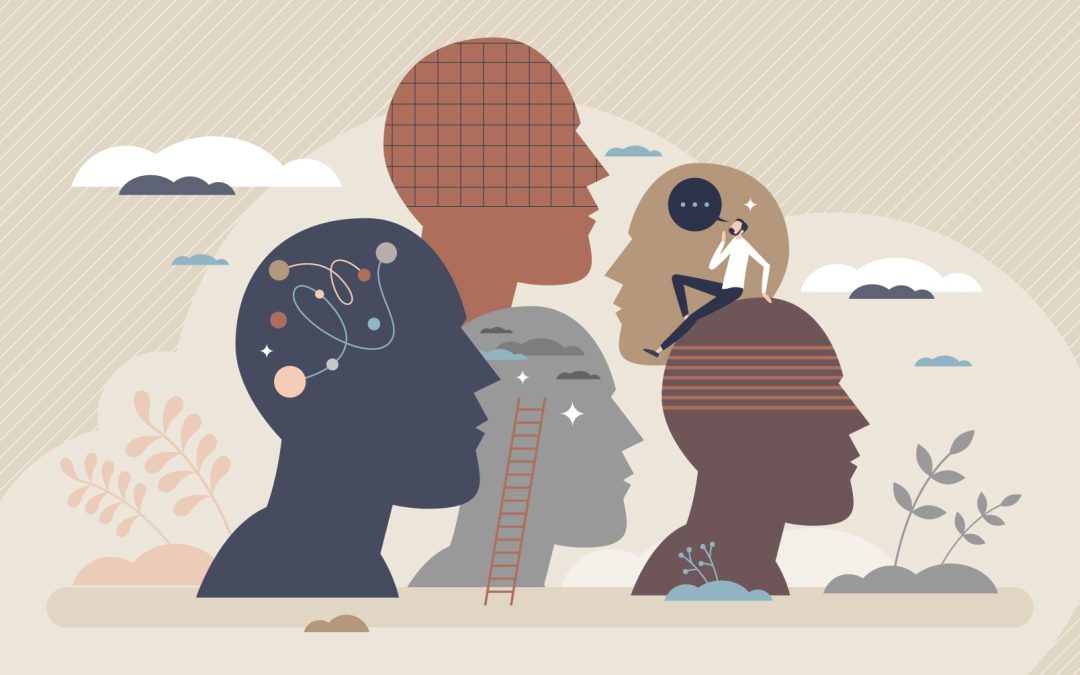But we’re here to change that. This blog highlights how you can support neurodivergent creatives and why this matter is essential. We’re also spotlighting our workshops with Attitude is Everything and providing advice for those seeking a diagnosis. Scroll down to learn more!
What Is Neurodiversity?
Before we jump into why support is so important, we’ll quickly recap what it means to be neurodivergent.
In its most basic definition from Cambridge University Hospitals, neurodiversity refers to the unique ways a person’s brain can process information. Humanity is neurodiverse: no two people have brains that are the same. Therefore, no two people view the world in the same way.
Neurodivergence is the general term for a range of conditions and learning differences, some of which include ADHD, Autism, Dyslexia, Dyspraxia and Dyscalculia.
Why Support for Neurodivergent Creatives Is Important
Though nearly one in seven people are neurodivergent, there’s a lack of awareness and appropriate infrastructure for neurodivergence, especially within the creative industry. This can leave anyone with neurodevelopmental differences at a disadvantage, and it can also perpetuate false stigmas surrounding neurodivergence.
By raising awareness, making relevant allocations and adjustments, and rebuilding industry processes with neurodivergence in mind, neurodivergent creatives can be supported to thrive. It also teaches others that we all process information differently, giving everyone different strengths. This is something we can use for good — especially when working in a team.
Ways creative industries can support neurodivergent professionals include:
- Providing relevant support and mentorship to help each other develop and grow professionally with management styles that match their learning needs.
- Making workplace accommodations and reasonable adjustments for those who require them to ensure neurodivergent creatives are comfortable. For example, providing quiet zones, sensory rooms, noise-cancelling headphones, or installing specialised software.
- Using clear and straightforward communication. This minimises misunderstandings and ensures everyone can follow instructions. Techniques could include regular check-ins, visual aids, or written tasks.
- Providing training and education to raise awareness. This encourages acceptance within the professional space and teaches creative teams to celebrate neurodivergence.
Utilising and implementing these techniques can make life much easier and more fulfilling for neurodivergent creatives.
Upcoming BAPAM Events
At BAPAM, we’ve been hosting workshops and training to help creatives tackle neurodivergence-related issues and to offer general support.
We’re working together with Attitude is Everything on these workshops, and together, we’re striving to help performing artists with neurodivergent traits and diagnoses share their experiences in a safe space.
Attitude is Everything is an organisation that connects disabled people with live events and music industries to improve accessibility. Their Beyond the Music project was formulated to help freelancers, professionals, and employees who are disabled, neurodivergent, deaf, or have long-term physical or mental health conditions.
See the event page here to learn more about our work.
Advice on Neurodiversity and Assessments
We are always here to support performing arts professionals with neurodivergent traits and diagnoses. However, we cannot provide or arrange assessments, and we recommend speaking to an NHS GP about the options for pursuing a formal, diagnostic assessment.
Though the NHS waiting lists are long, they are best placed to provide longer term care, treatment and follow-up, especially when treatment is recommended following an assessment.
Together with Attitude is Everything, we’ve created an “Advice on ASD and ADHD Assessments” page to ensure you have the roadmap for your health. Check out this web page if you’re interested inxploring a formal diagnosis or want to learn more about the subject.
Final Thoughts
Around 15 to 20% of the population is neurodivergent, which is something to celebrate! Whether you are educating yourself or striving to make your creative workplace better for others, raising awareness about neurodivergence within the performing arts is paramount.
Share this blog with your peers to help spread the importance of support for neurodivergent creatives. Read the latest BAPAM news here.

